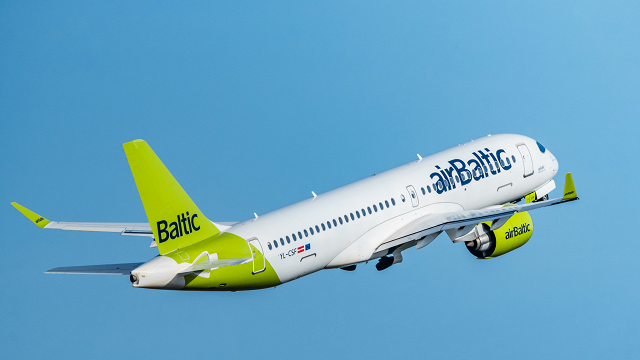However there's not too much information on how foreigners can set up a company here. In this piece we'll try to explain how to do it. the good news is that, provided you have someone to help you with the language, it's actually quite simple.
- #1. Choose your type of business
- #2. Paperwork
- #3. Set up a bank account
- #4. Submit forms at the Enterprise Registry
- #5. Enjoy doing business in Latvia!
- FAQ for foreigners
- Useful links
#1. Choose your type of business
There are several types of legal entities that can do business in Latvia, including SIA (the Latvian equivalent of a Limited Liability Company), Individual Merchant (Sole Trader), Joint-Stock Company, Partnership, and well as Branch or Representative Office.
The most popular form of business by far is SIA (LLC) and that's the path we're going to follow in this guide.
SIA in a nutshell
Limited liability companies have share capital that is divided into shares. Shareholders are not not personally liable for the company's obligations. A private limited company is liable for its obligations with its total assets.
A limited liability company must have a board that represents and directs the company. It can have one or several members that don't have to be shareholders.
Setting up a SIA:
Share capital of up to €2,800
A SIA can have share capital of up to €2,800. These are also called "one euro SIAs" and are a popular way of setting up a company in Latvia with very little investment.
It must be set up by individuals as opposed to another legal entity. A company like this can have up to five founding members.
Under this model, the company has to invest 25% of its income each year towards making the share capital approach €2,800.
It's very inexpensive to set up a "one euro SIA", however the shareholders of such companies are personally liable for the missing share capital up to €2,800. Another limitation is that shareholders must be board members too.
Associated costs: around €50 (€20 registry fee, c. €10 setting up a bank account, €7.11 per signature for verifying documents, €14.23 publishing fee).
Share capital above €2,800

In the case of the company's share capital being over €2,800, it can be paid from money anywhere from €1 up to €2,800, or even a valuation of an asset to make up the amount (such as equipment).
You can provide half the share capital initially, and give the rest at a later date, within the first year of setting up.
Associated costs: around €200 (€150 registry fee, c. €10 setting up a bank account, €7.11 per signature for verifying documents, €27.03 publishing fee).
If the paid-in share capital is above €2,800 there's no personal liability for the founders.
Once your SIA is registered you can start issuing and receiving invoices, and paying yourself a salary.
Taxes
The micro enterprise tax regime - Companies that register as micro enterprises (Latvian: mikrouzņēmums) pay a flat tax rate of 15% of the turnover, provided it doesn't exceed €100,000 a year (companies turning over less than €7,000 can pay just 12% until 2018).
Micro enterprises can employ no more than five people and can only pay salaries of €720 a month or less.
You can register as a payer of the micro enterprise tax while setting up your company (more on that below). It is a tax regime only, not a separate form of doing business.
Regular tax regime - Regular SIA enterprises pay a corporate income tax of 15% plus social security and other fees for employees. However these companies have fewer restrictions, the most important of which is probably the lack of a salary ceiling.
Startup - Latvia recently introduced several significant tax rebates and state aid for hiring employees for so-called "startup" companies. Startups that have attracted risk capital of at least €30,000 qualify for state support for up to five years after starting up. This is a brand new initiative, so quite how it will pan out remains to be seen.
VAT (Value Added Tax) - your SIA needs to be registered for VAT (Latvian: PVN). Each company gets assigned an EU-compliant VAT registration number, which is the same as its registry number, but with the prefix 'LV'.
Businesses outside Latvia do not need to pay VAT on your services, while when doing business with Latvian companies you have to charge them the VAT (currently 21%).
#2. Paperwork
To set up a company, you have to fill out a number of forms, all of which are available at the Enterprise Register website.

You will need someone to translate (sorry!) or else contact a lawyer to fill in the forms for you. The sample forms include directions for people who weren't born in Latvia, so if any of your Latvian-speaking friends have experience in commerce - you're in luck.
There are several companies specialising in helping foreigners set up companies -- but check out their reputation to make sure they are business helpers, not offshoring operations.
"We want to stress that all the documents for registering a company will have to be submitted in Latvian," Vineta Vilistere-Lāce, spokeswoman for the Investment and Development Agency of Latvia tells LSM.
The documents that will require a notary -- there's a public notary on site at the Enterprise Register and several others nearby (again you'll need an interpreter) -- to approve your signature on an application for registering a SIA; consent to appoint the Management Board; and the register of shareholders.
Other documents include a page stating the number of shares in the company and their ownership. There's also a document that states the legal address of the company. It requires permission from the owner of the property (if it's not you).
You can set up a company online by using this website by signing the documents with an electronic signature. However, in this case the application can only be signed using the eID card. To obtain one you have to be a citizen or have a residence permit, which is a bit of a Catch-22 situation. Latvia has no equivalent of Estonia's "e-residency" scheme.
"By law, companies with foreign capital have the same rules and obligations as local businesses. They can buy land and immovable property," says Vilistere-Lāce.
"Mostly foreign entrepreneurs choose to use the services of a lawyers firm, and that's what we usually suggest to our clients," she adds.
#3. Set up a bank account
Setting up a bank account for your company is very easy and fast. You can set up an account at any bank and pay in the initial share capital right away.

The bank will set up a temporary business bank account for you, together with a notification about the amount you've paid in.
It costs from €0 to around €15 depending on the bank. Most, if not all, banks will be happy to set up a meeting with an English-speaking business adviser, and many also provide English-language telephone and online banking services.
Compared to many other countries, you are likely to be pleasantly surprised by how modern and efficient Latvian banks are -- there's no waiting three days for a check to clear because no-one uses checks!
#4. Submit forms at the Enterprise Registry
With luck, you have all your documents on hand. Your documents will be checked at the Enterprise Registry (Pērses st. 2 in Rīga) where you can have the signatures verified by an in-house notary if you choose.

After paying the fees for setting up a business and publishing the information in Latvia's official state bulletin, your company will be registered in a few days' time.
Don't worry -- it's a lot less painless than it sounds and, once the language issue has been taken care of, you are likely to be pleasantly surprised how easy it is to set up a business here.
#5. Enjoy doing business in Latvia!
After a few days the Enterprise Register will reply concerning the registration of your new company.
If all goes well, it's time to find customers and clients for your new Latvian enterprise. Good luck!
FAQ for foreigners
- Do I have to have a residence permit to set up a company?
No, you don't. However you must have one should you wish to remain in Latvia and work in the company. Entrepreneurs can obtain a residence permit by investing at least €50,000 in equity capital. Read more about obtaining a residence permit HERE. - How long do I have to wait until my company is set up?
In the case of a Limited Liability Company, it usually takes about a week. - How can I make an invoice if I have a Latvian company?
Invoicing is subject to Latvian law. Invoices must be written in Latvian, (but you can have them in another language or languages as well). It is easiest to hire an accountant or bookkeeper to submit your monthly company returns and compile your annual report. It's not expensive and there are many firms specializing in foreign as well as domestic clients. Your bookkeeper will also be useful to keep you abreast of any changes in the law that might affect your business. - What incentives are there for foreign investors?
Aside from its new startup initiative, (see above), Latvia boasts a number of incentives for taxes, labor, R&D, and more.
eParaksts - A handy tool
The eParaksts (electronic signature) tool can help manage your company easily.
It is used for signing documents like changing statutes and can potentially save you visits to the Enterprise Register. It is handy for other things too, such as changing your declared address if you have a residency permit. Read more about the electronic signature for businesses.
Useful links
- Investment and Development Agency of Latvia (LIAA) - this state institution is tasked with promoting business development in Latvia and has plenty of information about investing in Latvia. Especially handy is the Investor Business Guide that covers aspects such as tax incentives, business infrastructure and more.
- The Latvian Chamber of Commerce and Industry - the largest non-governmental organisation of business people.
- Enterprise Register - you'll have to visit this at least once to set up a company.






























